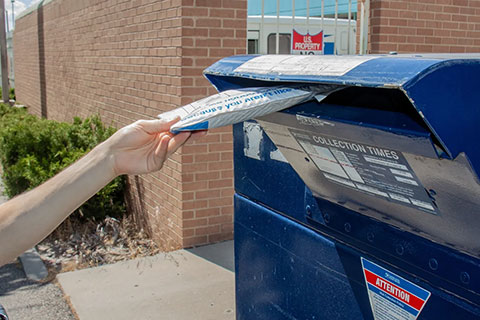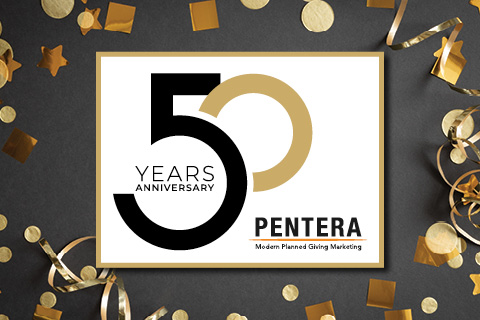
The Pentera Blog
Coronavirus: Recommendations About How to Interact with Your Donors in This Time of Uncertainty
By Claudine A. Donikian, President & CEO, Pentera, Inc.
These are unprecedented times because of the rapidly changing landscape due to the coronavirus. With work travel restrictions, small to major events being canceled, the uncertainty of the stock market, and many people being required to telecommute, we are all likely experiencing similar feelings—from upset to fear and anxiety. You might be wondering, what do I do in terms of my donors? And what about my marketing materials? What are other organizations doing?
We have the following recommendations for our valued clients:
- Steward donors. They have included you in their estate plans or made other types of planned gifts to your organization, and they would probably like to hear from you. Personal updates about happenings at your organization and letting them know that you will be rescheduling any canceled events will be reassuring.
This may be an ideal time to make contact with your donors and constituents and continue to send the educational information that they are accustomed to receiving. They will likely be at home more and be receptive to calls and other communications from you—and actually have the time to talk and read. Some might also be more receptive to reminders about the importance of planning. And some might even want to continue gift conversations; you’ll want to follow their lead on embarking on those types of discussions right now. But one thing donors will most likely want is reassurance. Reassurance that you’re available: the organization you work for and that they have given to remains open to communication with them and welcomes it. Reassurance that we are all in this together. Reassurance that they matter. It’s a time where you can focus on what all too often falls to the wayside—human connection and appreciation of their relationship with and generosity to your organization. In short, it’s a time when you can focus on stewardship.
- Schedule phone or virtual meeting with planned gift donors. Given the current environment, donors may be more receptive to a visit where you can discuss any questions they have about their gifts—and explain how they may be affected by recent developments. During these “reporting” visits, you may also have the opportunity to reinforce revocable gifts and explore options that currently make sense (if it feels right to bring gifts up). However, also keep in mind that many of your donors might be among the most vulnerable groups according to the Centers for Disease Control and may be practicing social distancing. You also might be on a travel ban mandated by your work and unable to visit in person. Scheduling calls and using other technology such as Facetime with donors would be the preferred alternative, even with local donors.
- Serve as a resource to donors. There is very little that is transactional about planned giving. Donors make planned gifts to an organization in large part for two main reasons: They have a relationship with the organization, and they are philanthropic. However, the timing of the gift depends on life events such as a change in marital status, birth of a child or grandchild, retirement, a health condition, loss of a spouse, or a financial development. Thus, sharing messages that educate your donors about ways to make a gift while addressing their personal situation might be welcome. While only the occasional gift can be traced directly to the marketing resources we provide, it’s important to remember that those resources lay the fundamental groundwork for planned gifts by educating your constituents about estate and financial planning and prompting them to take action. You can and should provide this valuable educational resource to your constituents, and your office should remember its main purpose is to serve as a resource as well.
- Make sure your messaging is timely. It’s important to get your messaging right, and this might seem a bit challenging considering the daily changes we are all experiencing due to how things seem to be changing almost daily. During times of uncertainty like these, gift annuities and charitable remainder annuity trusts that provide fixed income can be quite attractive to donors. People may also be more willing to consider a revocable gift such as a bequest provision or a beneficiary designation, especially since estate-planning lawyers say that they are receiving many calls from people to create and update wills and other estate-planning documents. That message would just have to be carefully crafted to avoid appearing insensitive.
With the recent passing of the CARES Act, our recommendation would be to serve as a resource that informs your donors about the charitable implications of the new law. And it also remains an ideal time to send information about gifts of retirement funds following the enactment of legislation, such as the SECURE Act, that pertains to such funds.
- Take the long view regarding life-income gifts, and provide reassurance to your donors about them, according to Pentera’s team of planned giving experts. In 2002-2003 and again in 2008-2009, many charities experienced significant losses in their gift annuity reserve accounts. As a result, some of them stopped issuing gift annuities. Those that persisted with their gift annuity programs and invested gift annuity contributions at the beginning of a prolonged bull market could expect good results from their programs. The recent major decline in stock values has again raised concerns, but charities should keep in mind that gift annuity rates are lower than they were during the previous market declines and that gift annuities established prior to a market recovery could have very good outcomes.
For the past decade, income from most regular charitable remainder unitrusts has been increasing year by year. However, if (as is likely) the value of trust assets is lower on January 1, 2021, than it was on January 1, 2020, beneficiaries will receive smaller income in 2021 than they did previously. Charities should prepare beneficiaries for this eventuality and point to the performance of such trusts over time.
I want each of our valued clients to know that all of us here at Pentera are here as a resource to support you. And I welcome all of our clients to join in the conversation and connect with us at any time—to ask questions or provide your own feedback and experience with donors as we move forward and navigate these concerning times together.
Warmest regards,
Claudine


